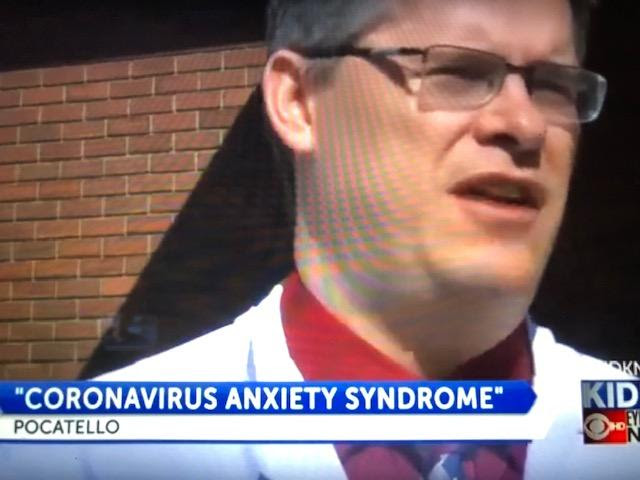What a difference a couple of weeks can make. At the beginning of the month, many Americans thought concerns over the crisis were overblown.
Today Americans are literally worrying themselves sick and it’s completely understandable — the pandemic is gaining steam, stocks are plummeting, businesses are closed, sports are canceled, and the unemployment rate is expected to soar in the coming weeks.
Layoffs intensify, leading to soaring unemployment claims as coronavirus closures continue
Anxiety can cripple your immune system, so how do you stay mentally healthy when everything seems to be spinning out of control?
PBS: How To Stay Resilient And Mentally Healthy During The Coronavirus Outbreak
| “Coronavirus Anxiety Syndrome’: Here’s how to take control over your mental health |
|
When news of the coronavirus broke at the end of last year, and as the stories from the outbreak became more alarming over time, I found myself wondering how health anxiety sufferers were coping.
You see, I used to be one. In late 2015, I suffered a post-traumatic stress disorder relapse which led to debilitating anxiety, much of which was health-related. During that period, I was paralyzed by the thought of becoming ill and dying. I was constantly checking for symptoms and signs of disease online and I was fixated on the health of my loved ones.
After treatment, I almost completely recovered. But I remember vividly how it felt to be in an all-consuming state of panic.
For many months, it ruled my entire existence.
Approximately 40 million American adults – roughly 18% of the population – have an anxiety disorder.
There are few statistics about health anxiety, but it can affect those who have an existing anxiety disorder or those who have experienced a life event such as bereavement, birth trauma or an accident. In times like these, where a global pandemic is taking up most of the media conversation, it can be even more difficult to stay calm.
Here is some advice that may give some comfort to those of you who are struggling.
1) Avoid the (health-related) news
We all want to keep up to date, but when you have health anxiety the need to check and read the latest updates can become compulsive, feeding the anxiety. Try having a news detox, or allocating yourself a time limit for reading or watching news. If you’re really worried about missing something crucial, you can always tell friends and family to contact you in the event of an emergency situation in order to keep you informed.
2) Try not to seek constant reassurance
Seeking reassurance can make you feel calmer for a little while, but in my experience, it is always temporary. Your brain creates a feedback cycle where you become increasingly reliant on reassurance, which only serves to reinforce the anxiety. It’s natural to want your loved ones to tell you things will be OK, but when you start needing that reassurance several times a day it’s time to take a step back.
3) Introduce an absolute ban on Googling symptoms
Dr Google is not, and never will be, your friend, especially not when you are a sufferer of health anxiety. Nor will message-boards and forums. Try to remember that people visit these places when they have reason to be concerned. Once you start understanding it’s a skewed lens, you’ll be better able to put things in perspective.
Read More |
|

